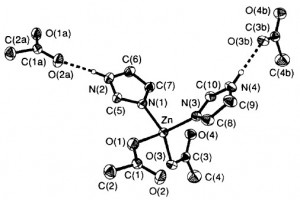Zinc – What Does it Do?

Oh, now I understand...
The reason for most of deficiency symptoms associated with low zinc levels is that zinc is a major player in over two hundred enzymes in the body. This mighty mineral is involved in the uptake, transportation, and release of carbon dioxide, nucleic acid synthesis and DNA repair, protein digestion, bone mineralization, oxidative ATP synthesis, and haem synthesis.
All of this means that it’s pretty darned difficult to predict how a zinc deficiency will make itself known as some of these enzymes may grab all of the small amount of zinc available whilst others go hungry. It can also mean that a zinc deficiency might not be spotted very early on and allows it to become quite insidious and difficult to correct later.
Zinc is involved in the proper development of the reproductive organs, with some classic studies showing an association between high consumption of unleavened bread in some countries and the incidence of dwarfism and sexual immaturity.
Zinc is also present in semen with every ejaculation costing you an average 317.98 ?g of zinc (along with some magnesium and calcium). There are plentiful studies suggesting that zinc from seminal fluid can boost a woman’s happiness and that it can act as a birth control method if ingested during fellatio. Clearly this is an area of some considerable controversy… What isn’t controversial, though, is that males who are low in zinc have a higher risk of being infertile, while optimising zinc status can help improve sperm production and quality.
 Want carbon-neutral webhosting with great customer service? Try DreamHost and use code 'Vegans' for a third off!
Want carbon-neutral webhosting with great customer service? Try DreamHost and use code 'Vegans' for a third off!



{ 0 comments… add one now }